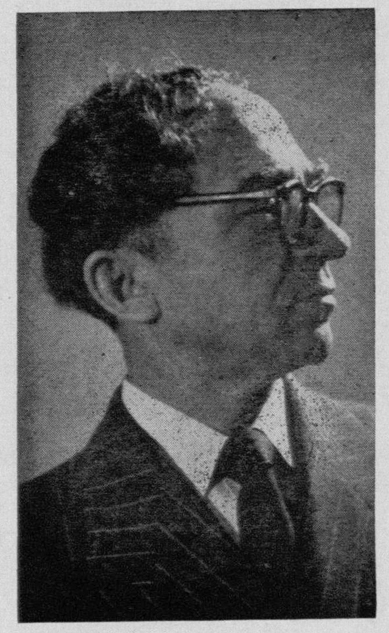
Editor of this issue: L. Sabaliūnas
 |
www.lituanus.org |
|
Copyright
© 1955 Lithuanian
Students Association, Inc.
No..5
- November 1955
Editor of this issue: L. Sabaliūnas |
|
WRITERS OF LITHUANIA
BERNARDAS BRAZDŽIONIS
 |
BERNARDAS BRAZDŽIONIS
(1907—), poet, critic,
writer oi children's stories. He lived with his parents in the U.S.
from 1908 to 1914, when he returned to Lithuania and there completed
his education at the University of Vytautas the Great in Kaunas
(1929-34). He majored in the Lithuanian language and literature.
Leaving the university, he taught Lithuanian at various schools; from
1937 he was associated with the Saka-las publishing house and from 1940
directed the Maironis literary museum. In 1944 he went into German
exile and was active in Lithuanian refugee affairs. In 1949 he came to
the U.S. and is now Editor-in-Chief of LITHUANIAN DAYS (Lietuvių
Dienos), a bilingual monthly published in Los Angeles.
Bernardas Brazdžionis secured his reputation as a poet with the
publication of a collection of poems, The Eternal Jew, in
1931. Then followed other collections: Falling Stars
(1933). Signs and
Miracles (1936, winner of the Sakalas prize), The City of the Grand Dukes
(1939, winner of the national prize for 1940), I Call the Nation
(1941), From a Wrecked
Ship (1943, published secretly during the German
occupation), Man Travels
Across the World (1943), The Lord's Steps
(1944, secretly). Strange
Mountains (1945, winner of the Board of Euducation prize),
The Northern Lights
(1947), The Great
Crossroads (1953, winner of the Lithuanian Writer's
Society prize).
He has also written a number of children's books and critical papers for the periodical press.
Bernardas Brazdžionis' poetry is original and individual. Throughout his is a singular talent with roots in Lithuanian tradition. There is no trace of Slavic influence in his work. He read the German Romantics and the later modern authors and was early familiar with European literary trends.
The most striking characteristics about Brazdžionis' poetry are the following: elementai-ness and sharp contrasting dramatic conflicts. Brazdžionis cultivates three fields of interest, the social, the personal, and the natural. Everywhere he is elegiac and clear. As a patriotic poet he stands among Lithuania's greats. In themes of the natural and the personal he achieves the subtlety and depth of universal poetry.